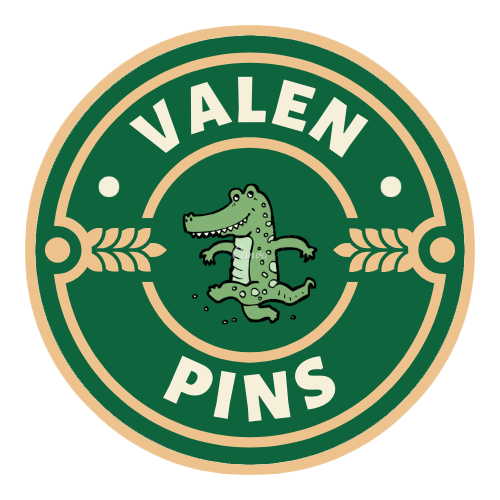Mythology has been a cornerstone of human culture for thousands of years, encoding the values, morals, and worldview of ancient civilizations. Its enduring influence persists today, shaping modern symbols and the concept of rewards in societal and individual contexts. Understanding this connection reveals how ancient stories continue to inform contemporary culture, branding, and even gaming experiences.
Table of Contents
- The Foundations of Mythology as a Source of Symbolism
- Mythology’s Role in Shaping Modern Symbols and Their Meaning
- Religious and Architectural Symbols: From Greek Temples to Modern Monuments
- Mythology as a Framework for Understanding Rewards
- Non-Obvious Dimensions of Mythology’s Influence
- Modern Examples of Mythology-Shaped Symbols and Rewards
- Critical Perspectives: Limitations and Misinterpretations of Mythological Symbols
- Conclusion: The Enduring Power of Myth in Shaping Symbols and Rewards
The Foundations of Mythology as a Source of Symbolism
Mythological stories encode universal themes such as heroism, morality, chaos versus order, and divine justice. These narratives serve as moral lessons and cultural benchmarks, transmitting shared values across generations. For example, the Greek myth of Zeus exemplifies authority, justice, and leadership. The thunderbolt-wielding king of gods symbolizes ultimate power, reinforcing societal hierarchies and the importance of legitimate authority.
Over time, many mythological symbols have transformed into modern icons. The image of Zeus, for instance, is not only a mythic figure but also a powerful symbol of sovereignty used in logos, emblems, and popular culture. Such symbols carry the weight of their original stories, evoking authority and respect even today.
Case Study: Zeus as a Symbol of Authority and Power
Zeus’s portrayal as the king of gods and wielder of lightning has made him a universal symbol for leadership and divine authority. Modern institutions, from governmental emblems to corporate logos, often adopt imagery that echoes Zeus’s attributes — such as lightning bolts or regal crowns — to convey strength and legitimacy.
Mythology’s Role in Shaping Modern Symbols and Their Meaning
Ancient symbols derived from mythologies are frequently adapted into contemporary branding and art. For example, the owl, often associated with Athena, symbolizes wisdom and knowledge, appearing in logos for educational institutions worldwide. Similarly, the serpent, linked to healing gods like Asclepius, is used in medical logos and symbols, reinforcing notions of health and recovery.
Mythological archetypes influence personality traits and behaviors. The hero archetype, exemplified by figures like Hercules or King Arthur, inspires traits such as courage, resilience, and the pursuit of justice. These archetypes shape cultural perceptions and influence individual identities.
A tangible example is the emerald gemstone, historically associated with foresight and wisdom. Such sacred objects symbolize qualities that societies value, linking material culture with mythological virtues.
Religious and Architectural Symbols: From Greek Temples to Modern Monuments
Greek temples served dual roles as religious centers and social hubs, embodying mythological narratives through architectural elements like columns and sculptures. For instance, the Parthenon’s friezes depict mythological battles, reinforcing societal ideals of divine order and civic pride.
Modern monuments, such as memorials or government buildings, continue this tradition by embodying collective values. Their architectural features often symbolize strength, unity, or divine protection, echoing ancient mythological themes in contemporary contexts.
Mythology as a Framework for Understanding Rewards
Divine rewards in mythology—such as immortality, wisdom, or favor—mirror modern incentives like recognition, success, or material gains. These stories reinforce cultural ideals, motivating individuals to pursue virtues aligned with societal values.
Mythological narratives often depict heroes receiving divine rewards after trials, exemplifying the idea that perseverance and virtue lead to ultimate success. This concept influences modern incentives, from awards in sports and entertainment to loyalty programs.
For instance, in the gaming world, modern interpretations of divine rewards are evident. The just hit 500x on Gates exemplifies how mythological themes—like divine treasure chests—are integrated into contemporary gaming experiences, creating a sense of achievement rooted in mythic symbolism.
Non-Obvious Dimensions of Mythology’s Influence
Beyond conscious recognition, mythology shapes subconscious perceptions and decision-making processes. Symbols like the ouroboros (endless cycle) influence how individuals view renewal and persistence, often without explicit awareness.
Cross-cultural symbolism reveals striking similarities. For example, the concept of a hero’s journey appears in Greek, Indian, and Norse mythologies, highlighting universal patterns that influence global storytelling and branding.
Psychologically, mythological symbols foster community and identity. Rituals, festivals, and shared stories create collective bonds, reinforcing social cohesion through archetypal narratives.
Modern Examples of Mythology-Shaped Symbols and Rewards
Popular media, brands, and entertainment often draw on mythological archetypes. Marvel’s superhero universe, for example, uses gods and demigods to embody virtues like justice and sacrifice, resonating deeply with audiences.
A contemporary gaming example is Gates of Olympus 1000, which integrates mythological themes into gameplay, offering perceived rewards that tap into ancient symbols of divine favor. Such design choices enhance engagement and perceived value, making the experience more immersive and meaningful.
Critical Perspectives: Limitations and Misinterpretations of Mythological Symbols
Using mythological symbols carries risks, including cultural appropriation and oversimplification. Misinterpreting symbols like the swastika or sacred motifs can cause offense or distort meanings. It’s essential to understand the cultural context to preserve integrity and respect.
Ethical considerations are paramount when incorporating mythological themes into modern products. Respectful adaptation ensures that symbols retain their significance and do not become mere marketing tools devoid of their cultural roots.
Conclusion: The Enduring Power of Myth in Shaping Symbols and Rewards
Mythology’s influence on modern symbolism remains profound, shaping the way societies communicate values and motivate behavior. From sacred architecture to gaming rewards, ancient stories continue to serve as a foundation for contemporary culture.
“Understanding mythological symbols enriches our cultural literacy, allowing us to appreciate the deep connections between past and present.”
As we continue to evolve culturally, the integration of myth-inspired rewards and symbols will adapt, reflecting new societal ideals while remaining rooted in timeless narratives. Recognizing these influences enhances our appreciation of both ancient stories and modern innovations.
